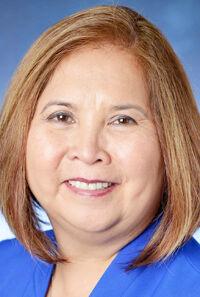San Francisco sues staffing startup, alleging it misclassifies staff

San Francisco has filed suit against Qwick, a staffing company that supplies thousands of food servers, dishwashers and other help to restaurants and hotels, saying the company is depriving its workers of minimum wages and other benefits by misclassifying them as independent contractors rather than employees.
The company, based in Phoenix, was founded in 2017 and expanded its operations to San Diego in 2019, Los Angeles in 2021 and the San Francisco Bay Area in January 2022, along with about 20 metropolitan areas in other states. It sends servers, bartenders, cooks and cleaners to food and beverage providers and, according to the suit, charges the companies for the services, then pays the workers after deducting a 40% fee.
As contractors rather than employees, the workers have no right under state law to minimum wages, overtime, meal and rest breaks, sick leave or unemployment compensation, among other benefits.
In the suit, filed Wednesday in San Francisco Superior Court, City Attorney David Chiu’s office said Qwick is violating a California law that classifies workers as employees if their work duties are controlled by the company that hired them, or the one they work for. It is the same law, AB5, that has been cited by state labor officials in a case involving drivers for the ride-hailing companies Uber and Lyft.
“Qwick’s Hospitality Workers are not independent contractors in business for themselves. Rather, they are employees that Qwick draws upon to staff its clients’ shifts,” the city’s lawyers said. They said the workers have no ability to negotiate or control their pay, their work duties or the length of their shift, and have to work wherever Qwick sends them.
“If Qwick’s business model is allowed to take root, hundreds of thousands of positions in the food and beverage industry in California risk illegal misclassification,” the suit said.
“Qwick is inequality disguised as innovation,” Chiu added in an interview.
The company did not immediately respond to a request for comment.
AB5, backed by labor organizations and passed in 2019 in response to the disputes over Uber and Lyft, says workers are employees, not contractors, if they are in the same business as the hiring company, or if the company controls their activity. That law was based on the state Supreme Court’s unanimous 2018 ruling in the Dynamex case, which said companies that want to prove their workers are contractors must show that the workers are running their own businesses.
The ride-hailing companies then sponsored a ballot measure, Proposition 22, that carved themselves out of AB5 and classified their drivers as independent contractors. It was approved by 59% of the state’s voters in November 2020 after a $200 million campaign by the companies. But the state Supreme Court agreed this June to decide whether Prop. 22 violates any sections of the California Constitution, including a provision authorizing the Legislature to regulate workers’ compensation.
That court case does not apply to Qwick, which was not covered by Prop. 22. The lawsuit seeks court orders requiring the company to treat its San Francisco workers as employees and also seeks financial penalties.
Reach Bob Egelko: begelko@sfchronicle.com; Twitter: @BobEgelko




